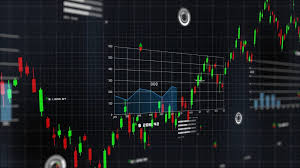Mastering Trading Crypto Charts

Understanding Trading Crypto Charts
In the fast-paced world of crypto trading, the ability to interpret Trading Crypto Charts http://recursosanimador.com/scripts/librovisitas2.php?pagina=9887 is crucial for making informed decisions. These charts provide a visual representation of price movements over time, enabling traders to identify trends, spot potential reversals, and make predictions about future price actions. In this article, we will explore the basics of crypto charts, different types of charts, essential indicators, and strategies to optimize trading performance.
Introduction to Crypto Charts
Crypto charts serve as the backbone of technical analysis. They allow traders to analyze price movements, volume, and market sentiment. To understand these charts, you first need to familiarize yourself with the fundamental components:
- Timeframe: This represents the duration for which price information is displayed, ranging from minutes to months.
- Price Axis: The vertical axis indicates the price levels of the cryptocurrency.
- Time Axis: The horizontal axis shows the time duration for which data is recorded.
Types of Crypto Charts
There are several types of charts used in crypto trading, each providing unique insights:
1. Line Charts
Line charts are the simplest form of charts, showcasing the closing prices over a specified time frame. They are easy to read and help to identify the overall direction of the market.
2. Bar Charts
Bar charts provide more information than line charts, displaying the open, high, low, and close (OHLC) prices in each time frame. This information is crucial for understanding market volatility.
3. Candlestick Charts
Candlestick charts are favored by many traders for their detailed representation of price movements. Each candle shows the open, high, low, and close prices, providing insights into market psychology.
Key Technical Indicators
To enhance your analysis of Trading Crypto Charts, numerous technical indicators can be applied. Here are some of the most popular:
1. Moving Averages
Moving averages smooth out price data by creating a constantly updated average price. They are useful for identifying trends and potential reversal points.

2. Relative Strength Index (RSI)
The RSI measures the speed and change of price movements, indicating overbought or oversold conditions, which can help traders make entry or exit decisions.
3. Bollinger Bands
Bollinger Bands consist of a middle band (SMA) and two outer bands (standard deviations). They help to identify volatility and potential price breakouts.
Chart Patterns and Trading Strategies
Recognizing chart patterns is essential for predicting future price movements. Some common patterns include:
1. Head and Shoulders
This pattern indicates a trend reversal. A “head” is formed by a peak followed by a higher peak, flanked by two “shoulders” (lower peaks).
2. Double Tops and Bottoms
These patterns suggest potential reversals, with a double top indicating bearish sentiment and a double bottom indicating bullish sentiment.
3. Flags and Pennants
These continuation patterns usually signal the continuation of the current trend, often forming after strong price movements.
Risk Management and Psychology
Effective trading is not only about understanding charts and indicators; risk management and psychology play critical roles as well. Here are some tips:
- Set Stop-Loss Orders: Always determine your risk before entering a trade. Setting stop-loss orders can help mitigate losses.
- Use Position Sizing: Properly sizing your positions based on your trading account and risk tolerance can protect your capital.
- Control Emotions: Trading can invoke strong emotions. It’s crucial to stick to your trading plan and not let fear or greed dictate your decisions.
Final Thoughts
Mastering the analysis of Trading Crypto Charts requires time, practice, and continuous learning. By combining technical analysis, chart patterns, and sound risk management principles, traders can enhance their chances of success in the volatile crypto market. Remember, the key to effective trading lies not only in mastering charts and indicators but also in understanding market psychology and managing your emotions. Happy trading!